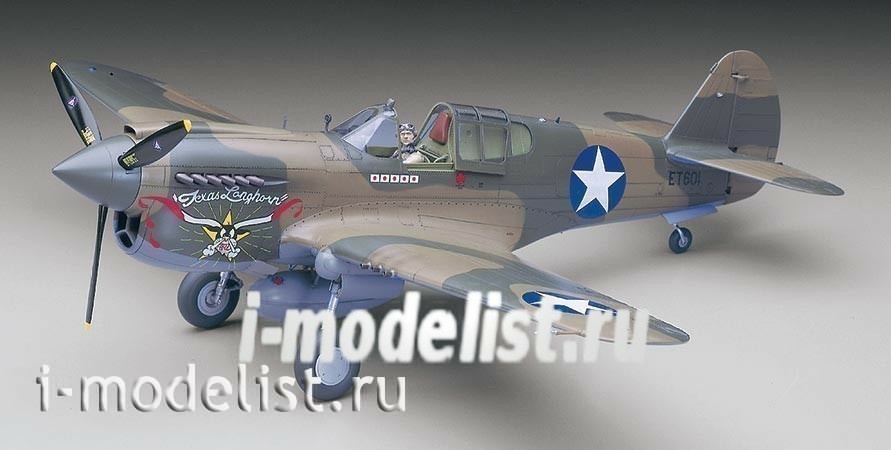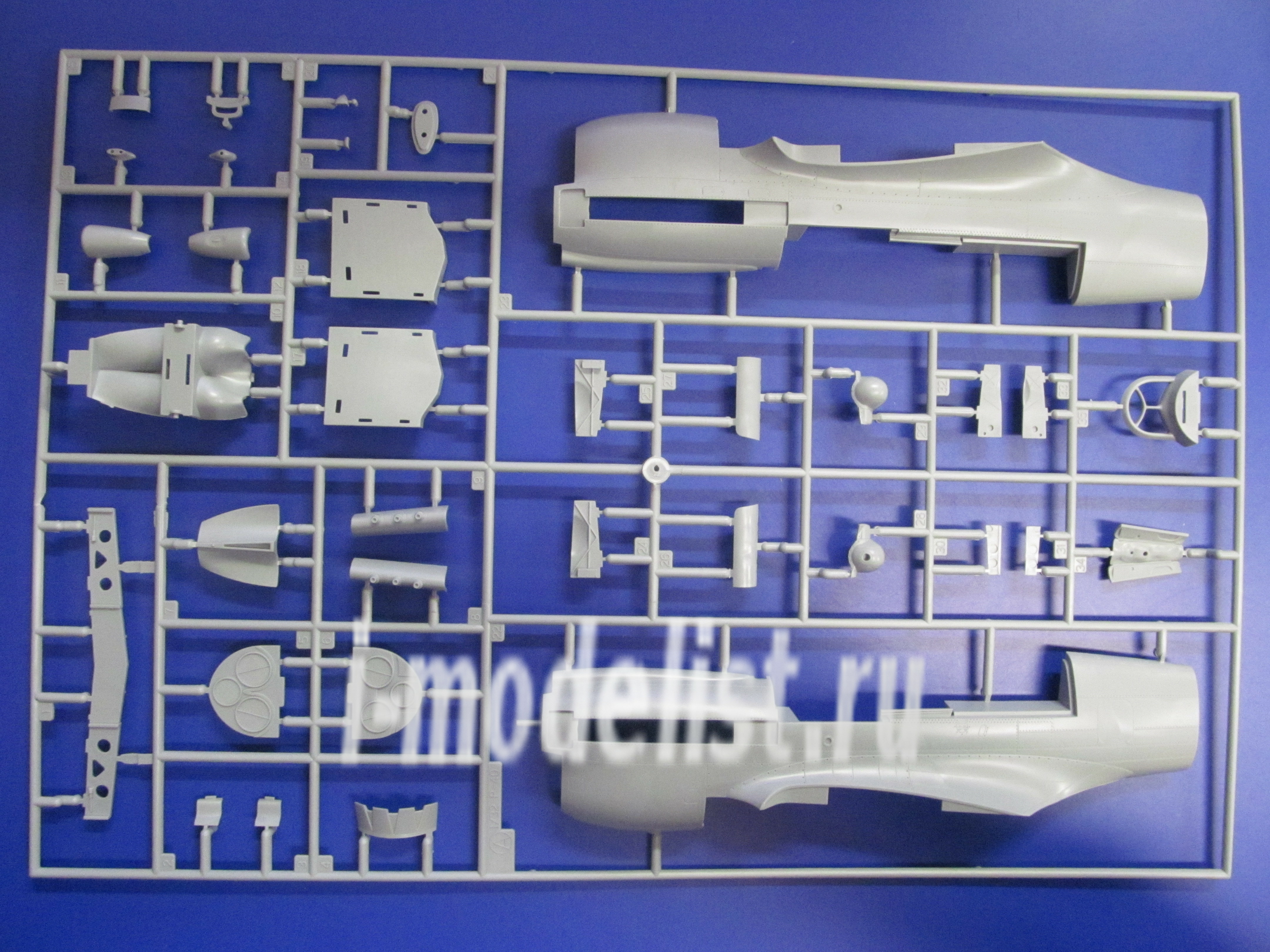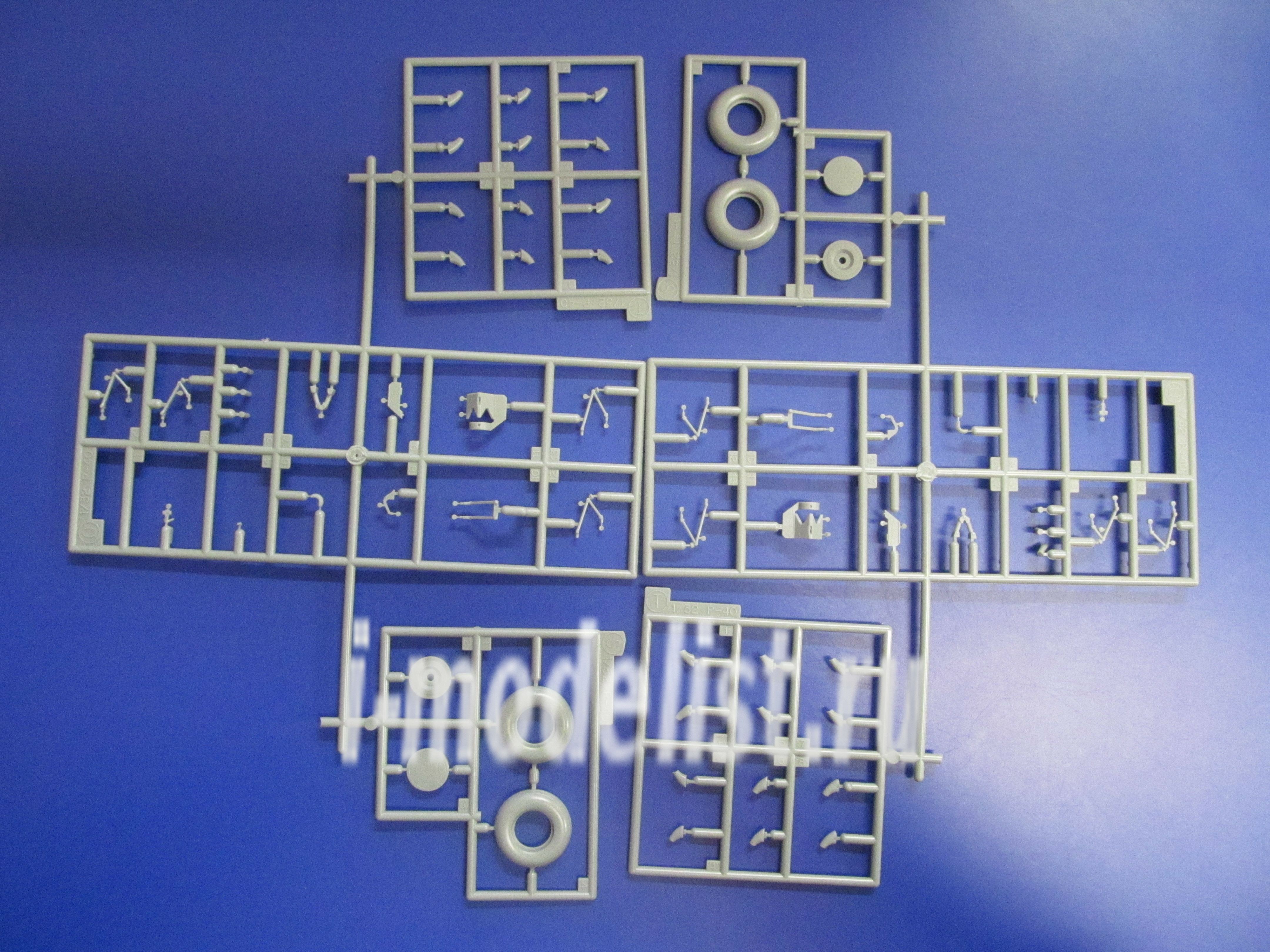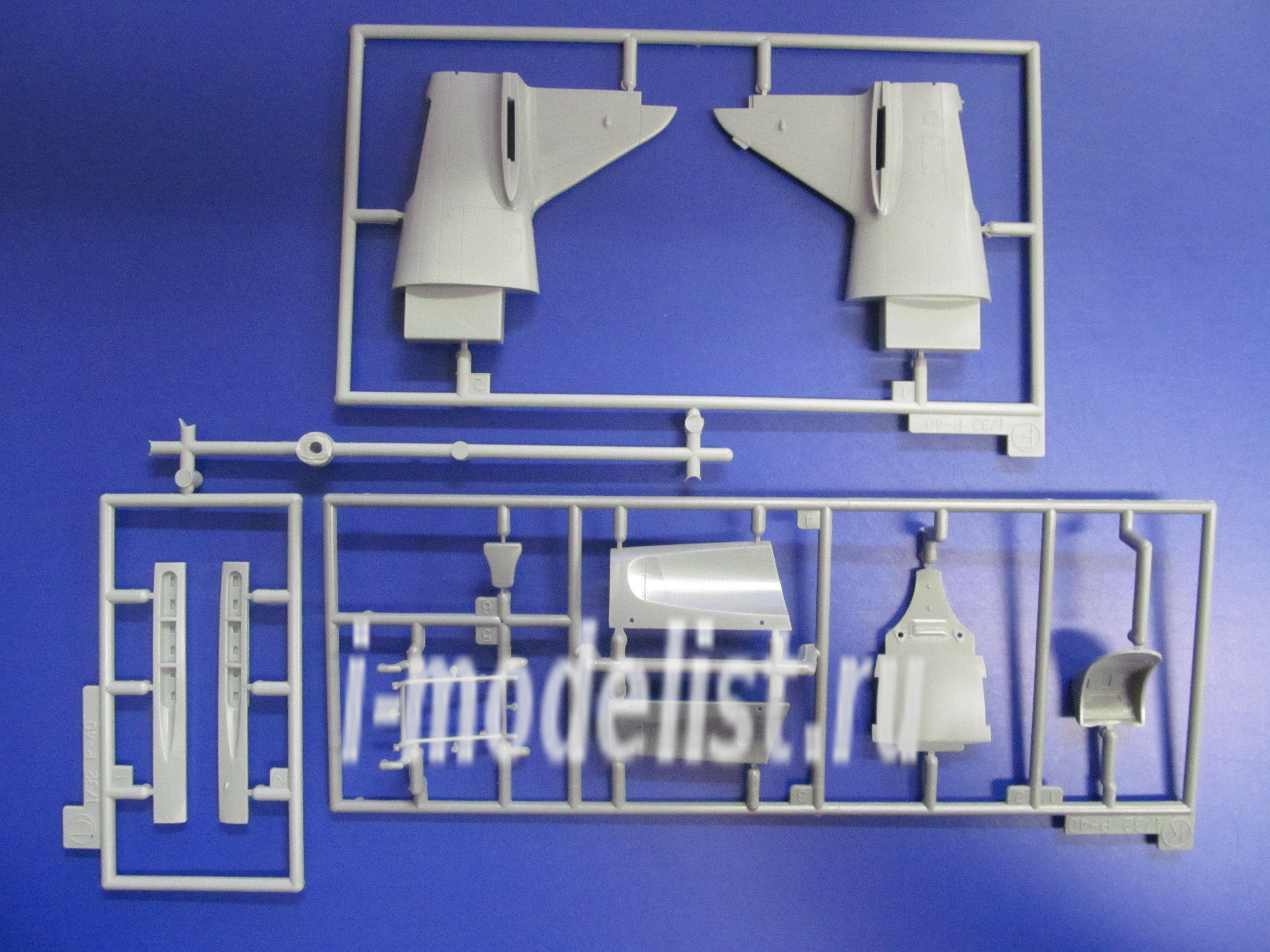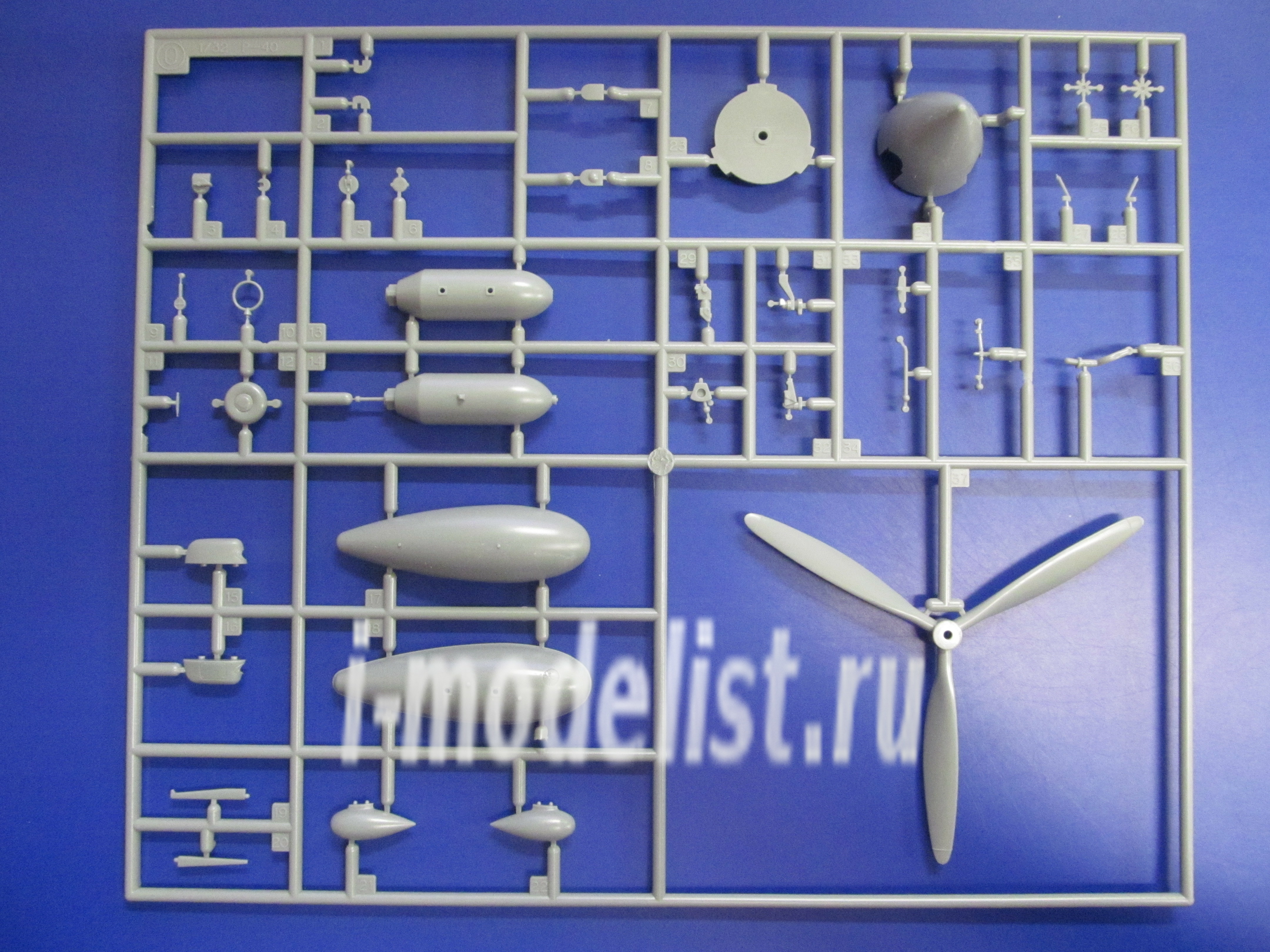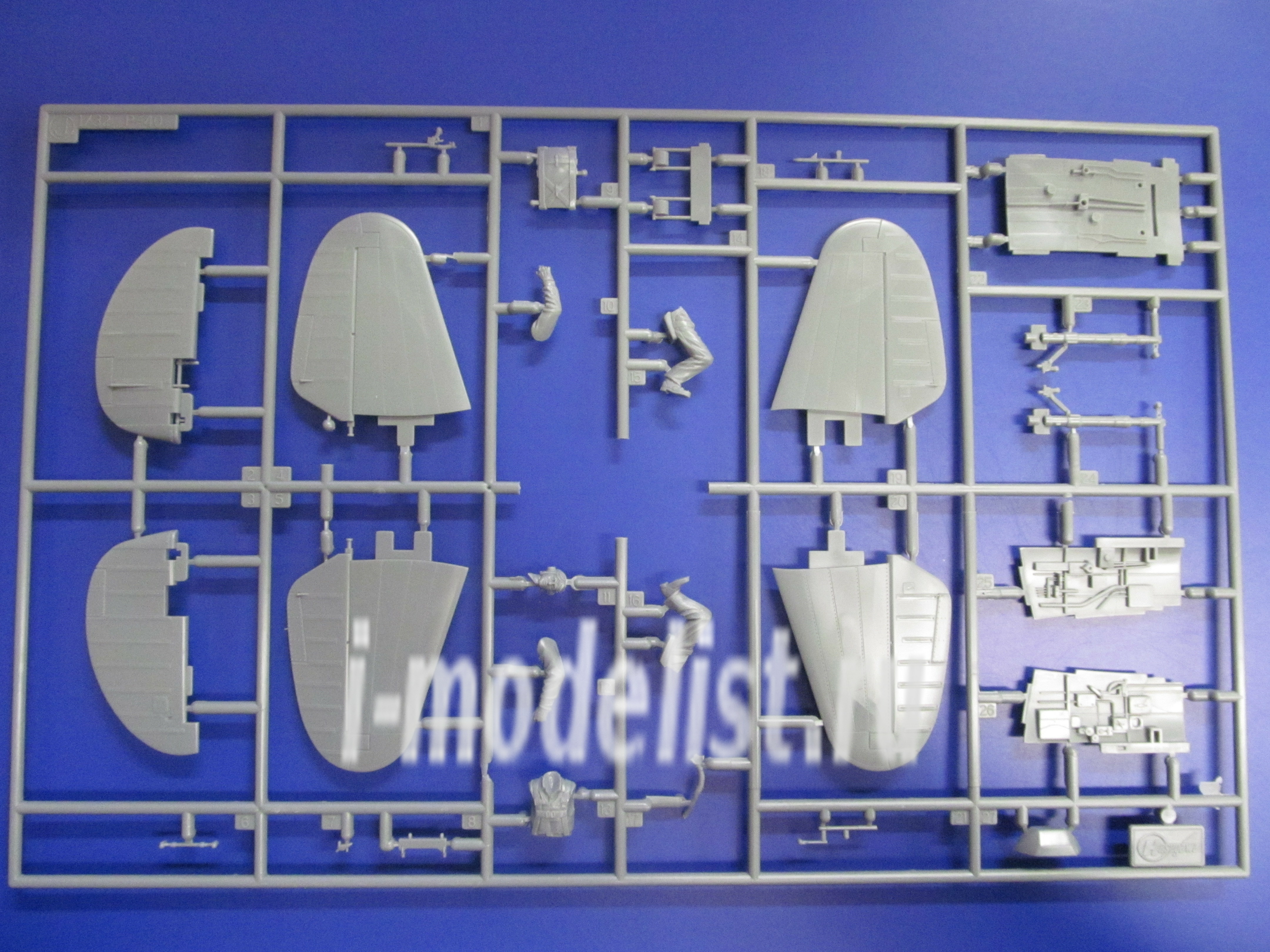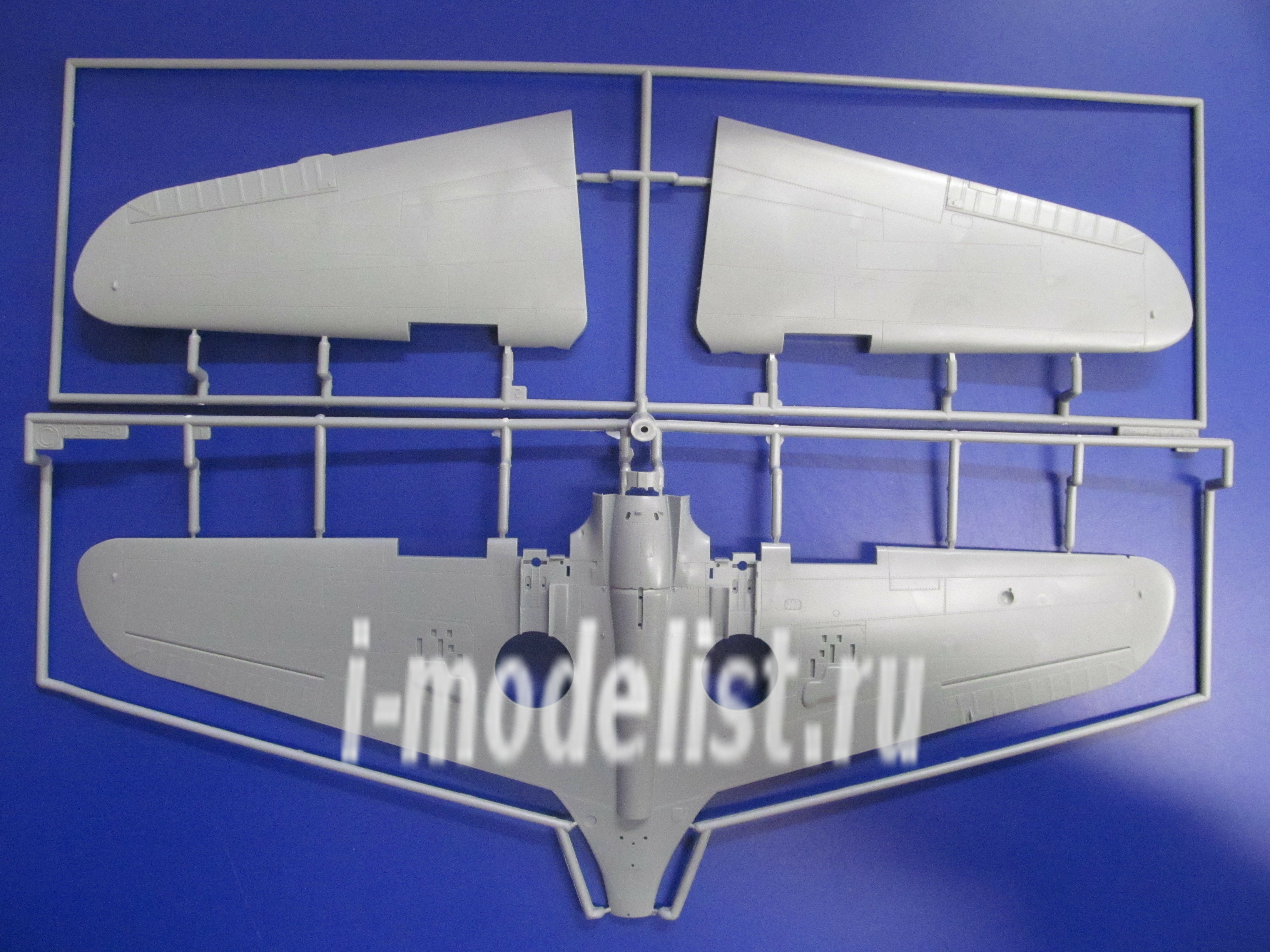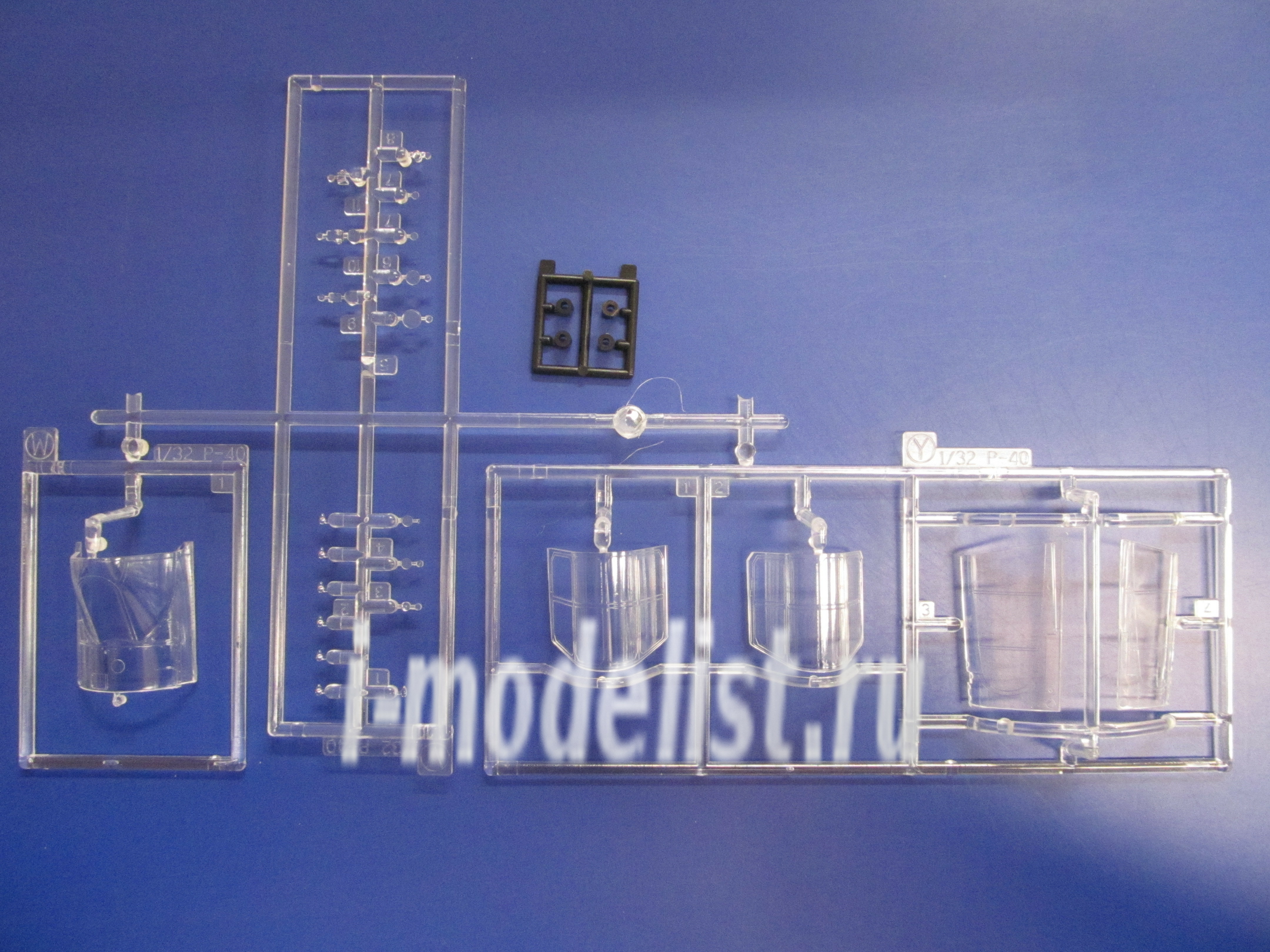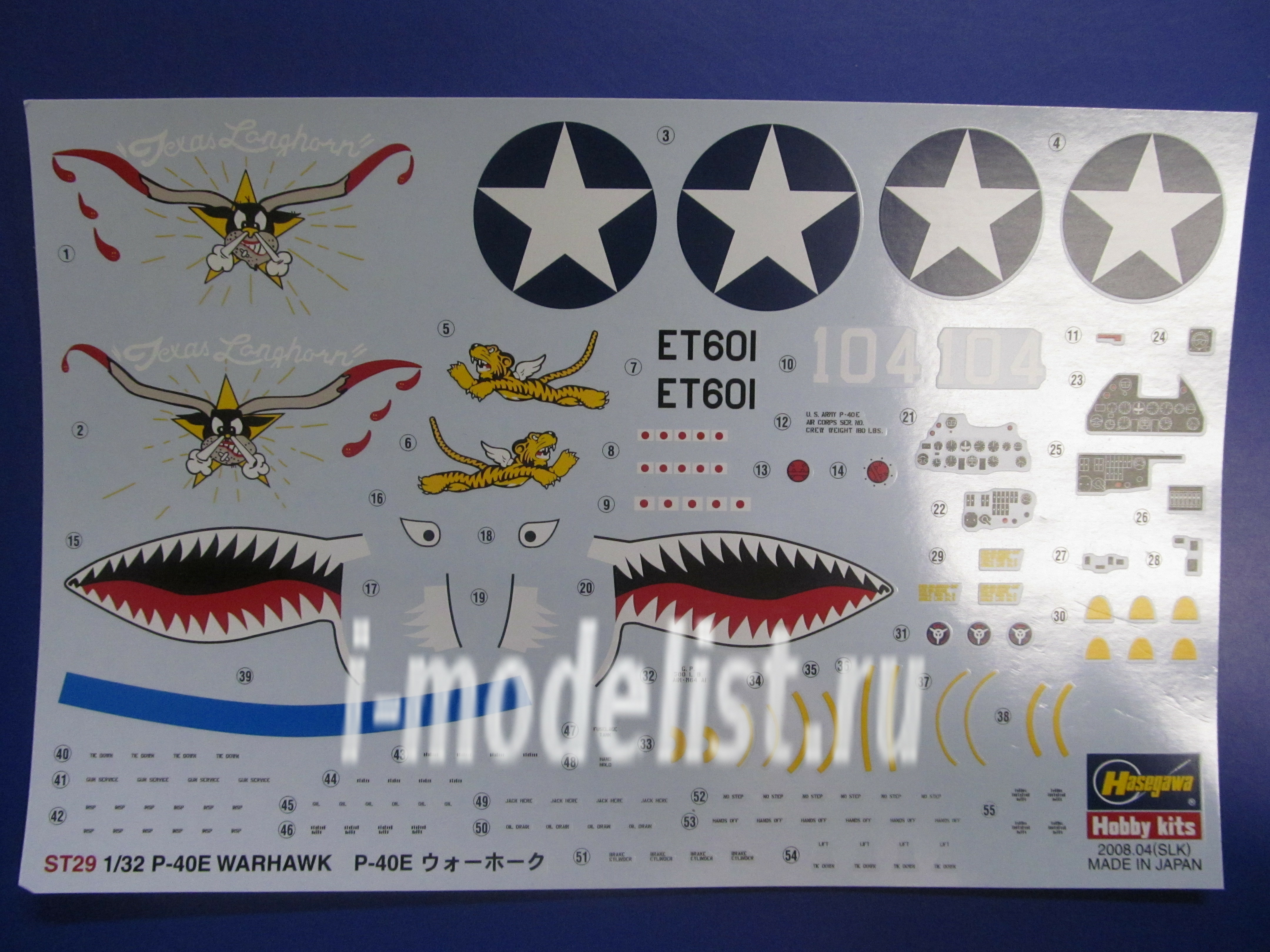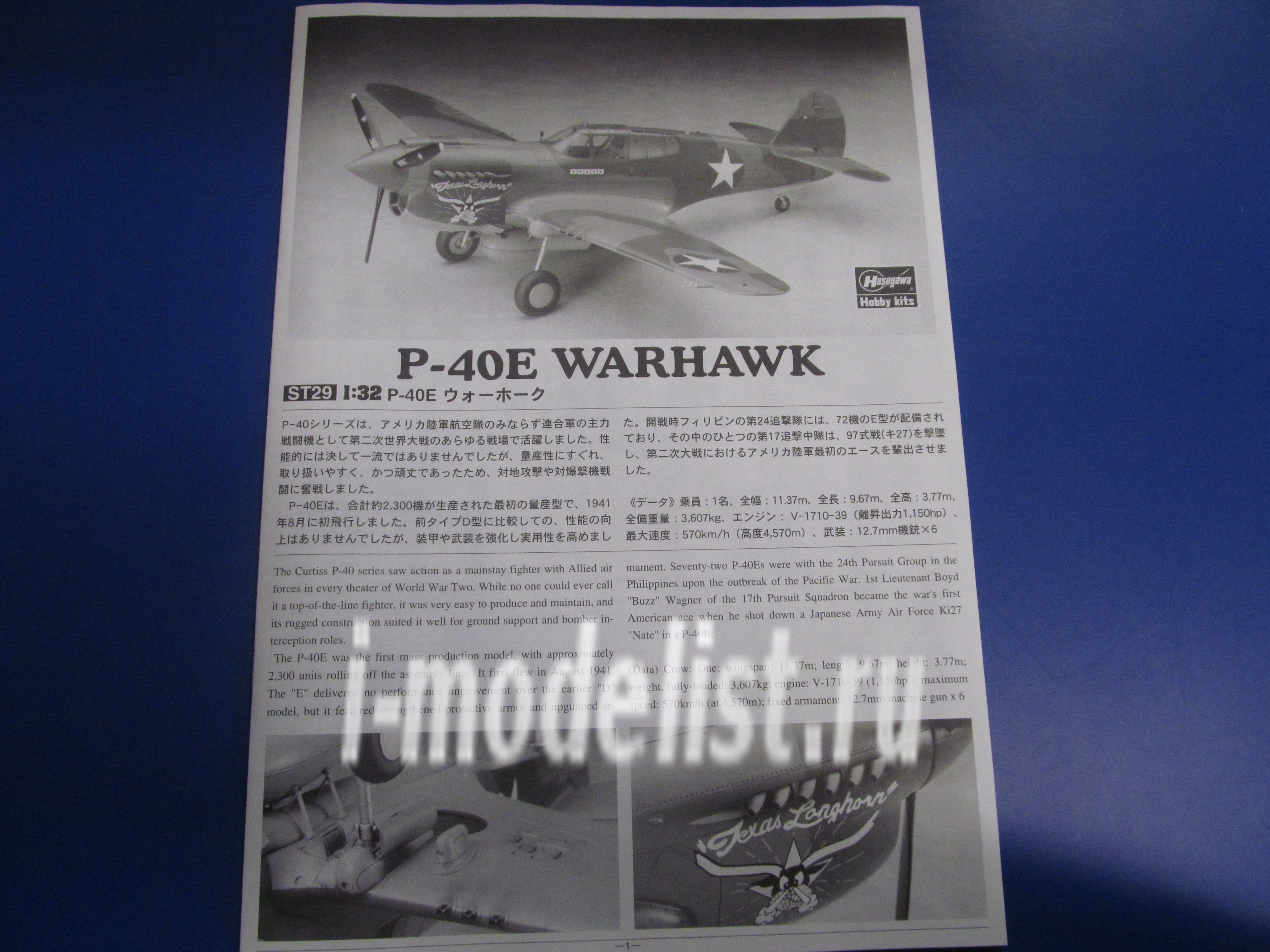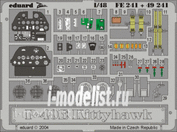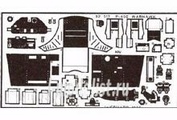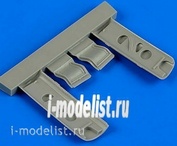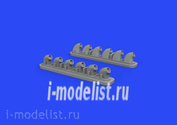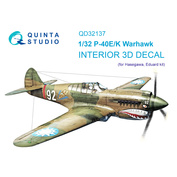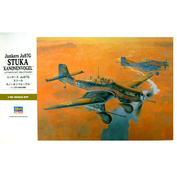Additional Information
the First "hawk" 87 soared 22 may 1941 It was the English "Kittyhawk" I ("hawk" 87A-2), and a week later came the first P-40D. Armament of four machine guns did not last long. Back in February 1941, an amendment was made to the terms of reference, which required the installation of not four, but six 12.7 mm machine guns. However, "by inertia" released 22 P-40D and 20 similar "Kittihauk" I with the same weapons. All subsequent machines had on six machine guns. In the USA this modification is called the R-40S (and later all versions of R-40 in the United States have appropriated the name "Warhawk"), in England and they both had the same designation "Kittyhawk", the Fighter P-40E in "dry" form already weighed 3814 lbs. compared to the "Tomahawk" was reinforced armor protection in front and behind the pilot. The armored head now reached a thickness of 18 mm. All this increased the survivability of the aircraft. The R-40E was also used as a fighter-bomber: instead of a hanging tank, it could carry a standard American bomb weighing 500 pounds (227 kg) under the fuselage. Later, under the wings put holders that allowed to take two hundred-pound (45 kg) bombs or six twenty-pound (9.1 kg). Similarly, at the front and altered "Tomahawks". It was possible to bomb and from a dive at an angle to 70╟. The new engine and improved aerodynamics provided an increase in speed in almost the entire range of heights, an increase in flight range (partly due to the larger volume of tanks). However, nothing is given for nothing. As a result of the weight increase, the rate of climb deteriorated - to a height of 5000 m R-40E rose not in 7 minutes, as the R-40S, but in 7.8 minutes. The working ceiling decreased, the time of the turn increased, the length of takeoff and landing run increased. In short, all the innovations increased the value of the aircraft as a stormtrooper, but limited the ability to conduct air combat. Changing the weight distribution (strong rear alignment) also worsened the aerobatic characteristics of the machine. It became difficult to get out of the dive without the use of trimmers - the force on the handle increased and there was a tendency to tighten. There was also a danger of withdrawal to the side on takeoff, deteriorated exchange rate stability at low speeds. However, in General, the aircraft remained available for the average pilot, stable on bends. In a spin it was only for gross pilot error.
Number of parts: 202.
Caution! Glue and paints are not included.
The configuration and appearance of the model are subject to change without notice.
Additionally, we recommend also purchasing
Related Products




